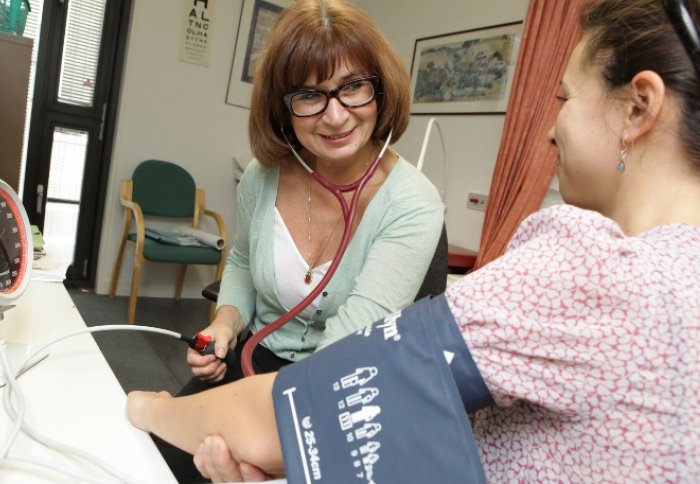

Report finds significant variations in the quality of primary care in London.
Based on a news release from The King’s Fund
There are significant variations in the quality of primary care in London, according to a new report commissioned by NHS London from The King’s Fund and Imperial College London.
General practice in London faces unique challenges - its population is more transient and diverse, with hundreds of different first languages spoken. It is also growing faster than elsewhere in England. While on some measures Londoners are healthier than people from other parts of the country, widespread inequalities exist, with life expectancy varying by up to nine years and infant mortality three years between different parts of the capital.
The report highlights some examples of excellent performance - for example, some deprived parts of the capital have the highest rates of child immunisation in the country, and London practices have made good progress in adopting new information technology. However, Londoners also report lower levels of satisfaction with GP services than patients elsewhere in the country - for example, they are less satisfied with access to services, the quality of consultations and support for managing long-term conditions.
In the coming years, London will face a growing health challenge as a result of an ageing population and unprecedented financial pressures. The report argues some practices in the capital are not equipped to meet this challenge.
- While there has been investment in new facilities, some practices continue to operate from premises that are not fit for purpose.
- The GP workforce is older in London than elsewhere, with a quarter of GPs aged over 60 in some areas - this raises staff recruitment and retention issues.
- Smaller practices tend to employ fewer practice staff. Almost 20 per cent of London practices are single-handed, compared with just 13.8 per cent across the rest of England. While this does not mean patients receive a poorer service it may limit what the practice can offer.
The report argues that major changes are needed to the organisation and delivery of primary care to meet these challenges.
- GPs should work more closely with hospitals, community services and social care to improve the co-ordination of care, especially for patients with long-term conditions.
- GPs and commissioners must make better use of data to understand and act on local variations in performance, and exploit the potential of IT to improve the quality of services for patients.
- GP practices could move more quickly towards different models of service provision such as operating in federations or networks. This will enable smaller practices to retain their local focus but provide a wider range of services.
Dr Christopher Millett, a co-author of the report, from the School of Public Health at Imperial College London, said:
"Improving the quality of primary care in the capital is vital for containing healthcare expenditure and for improving the health of all Londoners. While this report highlights many examples of excellent care, more needs to be done to reduce variations in performance across the capital. The report also highlights the need for far greater focus on disease prevention in London primary care, both by increasing advice and counselling to individual patients and by working closely with local government to reduce smoking, alcohol misuse and obesity in local communities."
Anna Dixon, Director of Policy at The King's Fund, said:
“While there are some excellent general practices in London, the quality of care that Londoners receive is not as consistently good as it could be. There is huge potential to make better use of information and data to understand and address variations in performance. I hope this report will encourage GPs to engage in a discussion about how to lead a transformation in general practice to ensure all Londoners enjoy the best possible health care.”
Dr Tom Coffey, Assistant Medical Director at NHS London and a GP, said:
“The King’s Fund report recognises the excellent service offered by GPs across the capital but calls upon us to consider the transformation of primary health care in London, taking into account the changing population and varied, increasing demands. This comes at a pivotal time as Clinical Commissioning Groups plan for the future; using it as a basis to identify and develop strategic local change to improve the service communities receive.”
Article text (excluding photos or graphics) available under an Attribution-NonCommercial-ShareAlike Creative Commons license.
Photos and graphics subject to third party copyright used with permission or © Imperial College London.
Reporter
Sam Wong
School of Professional Development

Contact details
Email: press.office@imperial.ac.uk
Show all stories by this author




Leave a comment
Your comment may be published, displaying your name as you provide it, unless you request otherwise. Your contact details will never be published.